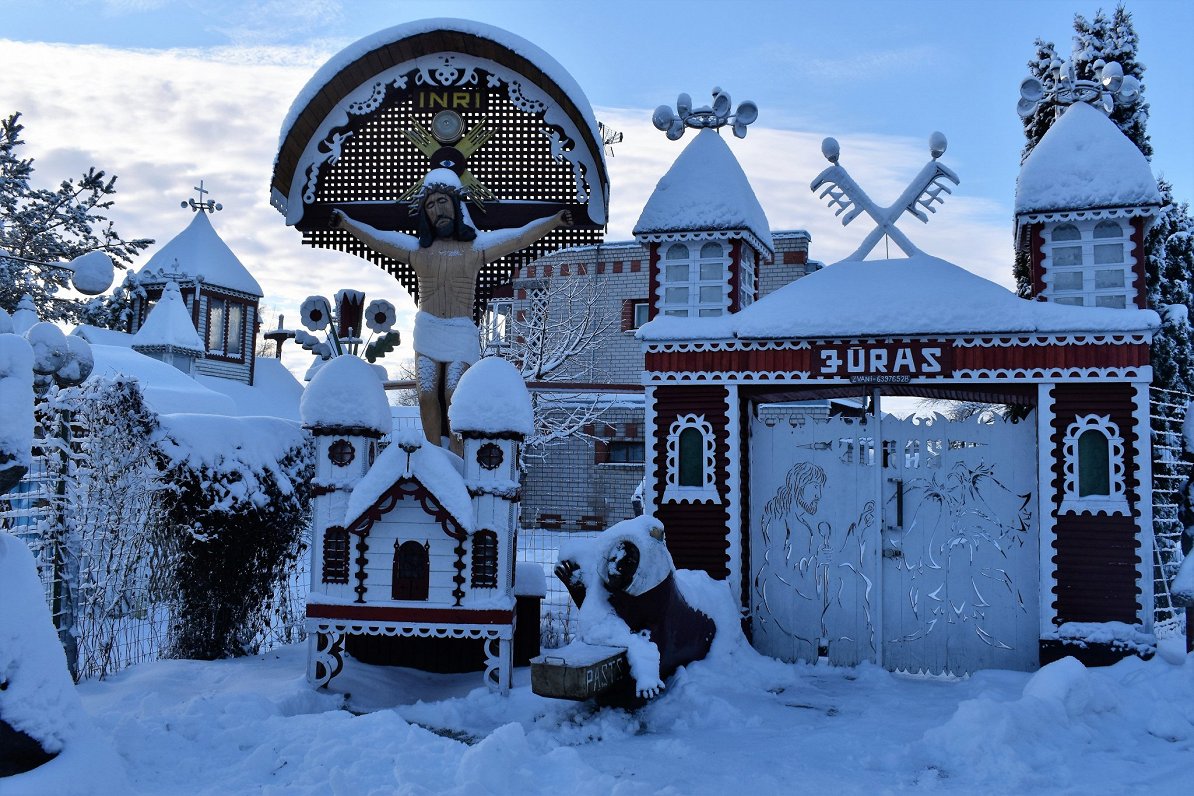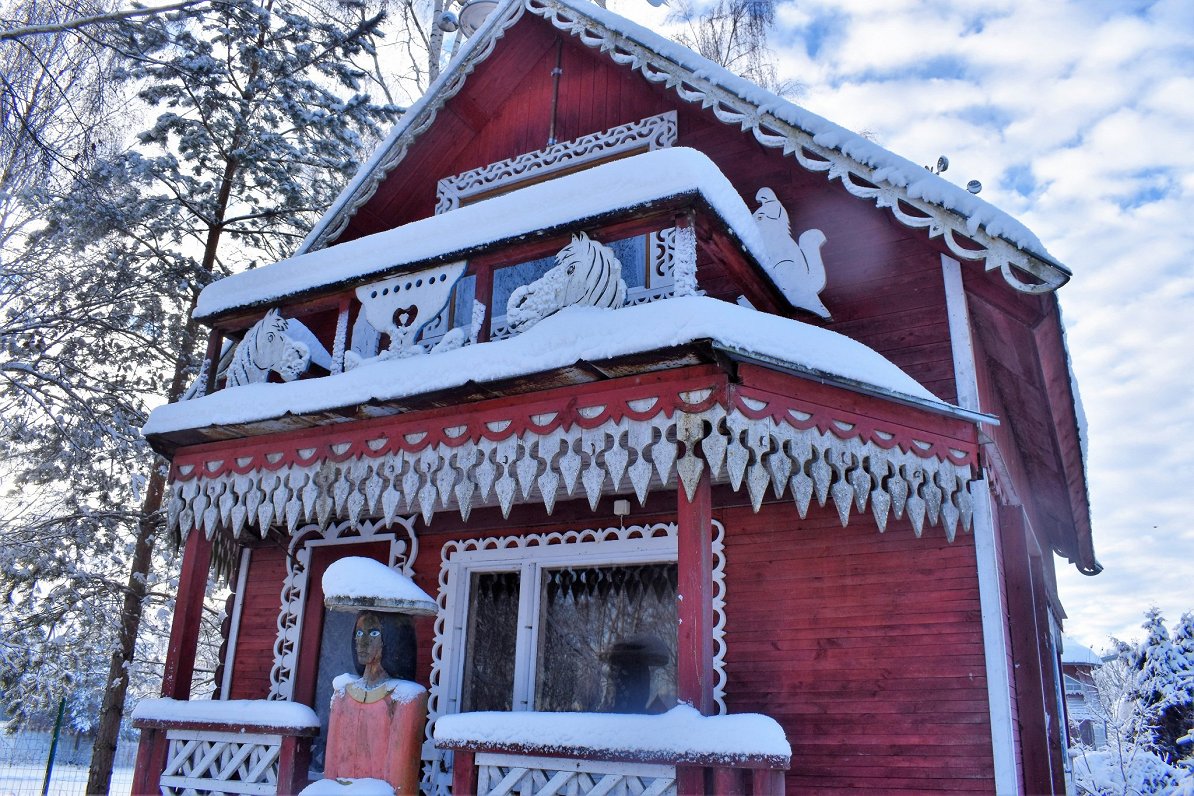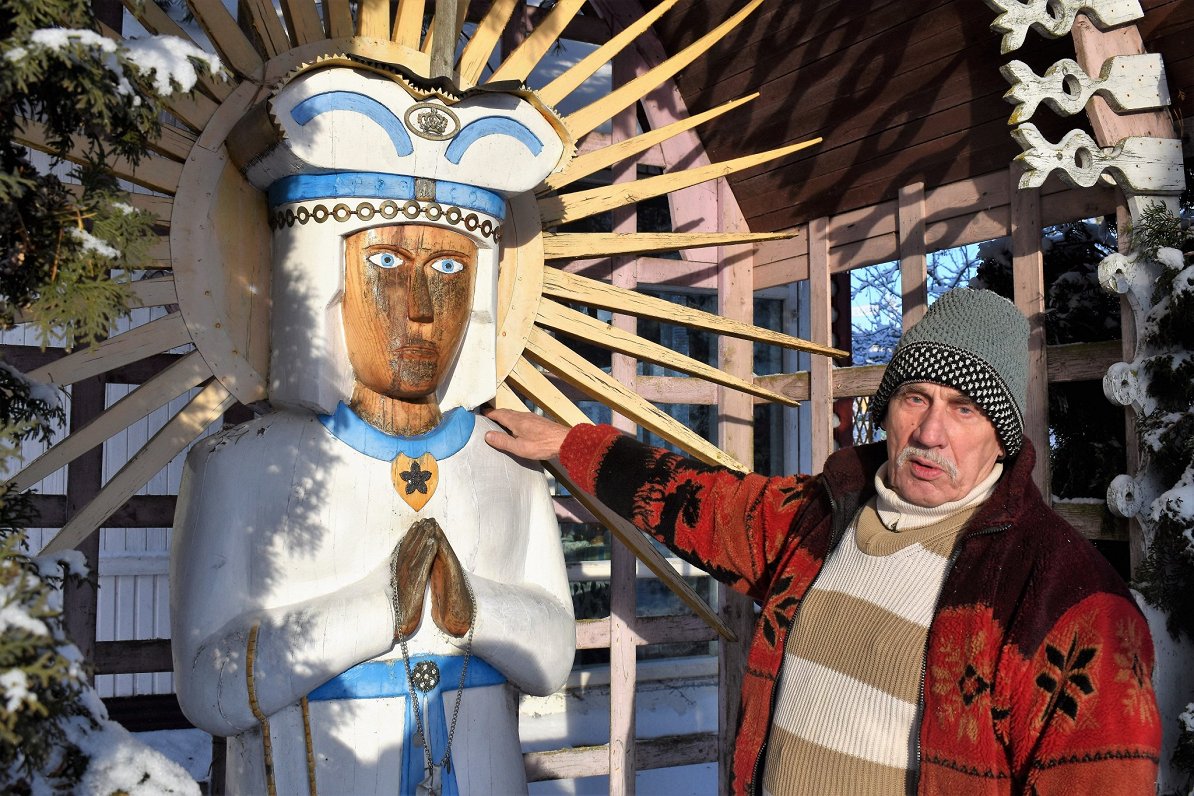A prime example of such talent is the fantasy village “Jūras” in Vecumnieki, 50 kilometres south of Riga. Over the last two decades, local craftsman Juris Audzijonis has created a dreamlike landscape of windmills, churches and cottages which enchant thousands of visitors every year.

The site is all the more remarkable because Juris has never had any formal training as a carpenter. Or a sculptor. Or a bricklayer (he also built the sturdy family home on the edge of the property with his own hands.) Growing up in Code, near Bauska, he drove tractors and fed pigs on a collective farm. For the last ten years, he has earned a living tending the furnace at a retirement home.
“The truth is, I never liked school very much,” grins Juris. “I’ve taught myself everything I know.”
Despite being raised by Catholic parents, Juris was a typical Soviet unbeliever. Then, 25 years ago, he had a vision of “golden rays of light from the other side,” and found God. He picked up some tools and began carving a sculpture of the Virgin Mary, based on an icon he bought at Aglona Basilica.
The expressive figure clearly reveals artistic gifts. But salt-of-the-earth Juris is characteristically modest.
“I just put the picture beside me as a guide and began chopping away,” he says.
More religious art followed. In a grotto he calls “Bethlehem,” another sculpture of Mary has a crack in the wood running down her right eye, like a tear. Juris says it appeared after he had finished the work. And after he completed the baby Jesus in her lap, a similar rupture mysteriously emerged on his face.
There’s a large figure of Christ on the cross by the front gate, flanked by a demon crawling on all fours on the ground, from which the household’s letterbox protrudes.
“He’s the ruler of the world,” says Juris, gesturing toward the dark one. “There are both good and evil forces in the world.”

There’s palpable tension between such profundity and the exhuberant kitsch of much of the village. But even the eccentric weathervanes made out of aluminium plates, shuttlecocks and bicycle parts carry a message.
“Up there is the wind and nature,” he explains. “God created nature by spinning Eve around in the wind.”
Rather than booking, visitors can simply turn up and call the number on the gate for a tour by Juris. There’s a donation box but no entry fee. “Jūras” is a popular spot for weddings, and Juris sometimes plays the accordion at the festivities (he learned that skill from his musician father).
At age 79, Juris shows no signs of slowing down, and his workshop will be humming again just as soon as the weather warms up a bit. This kindly man’s view of human nature also hasn’t chilled with the years. He recounts how when he was working on the collective farm, the director of the enterprise ordered him to turn “the worst of the drunks” into a construction crew. Juris negotiated a pay rise for the outcasts, and suitably motivated, they worked wonders.
Inside a small museum in the “Jūras” windmill is a collection of banknotes from around the world donated by guests, protected only by a thin pane of glass. In the middle sits a pristine 200 euro bill. Isn’t he afraid someone will steal it?
“No, people aren’t like that,” he answers.































